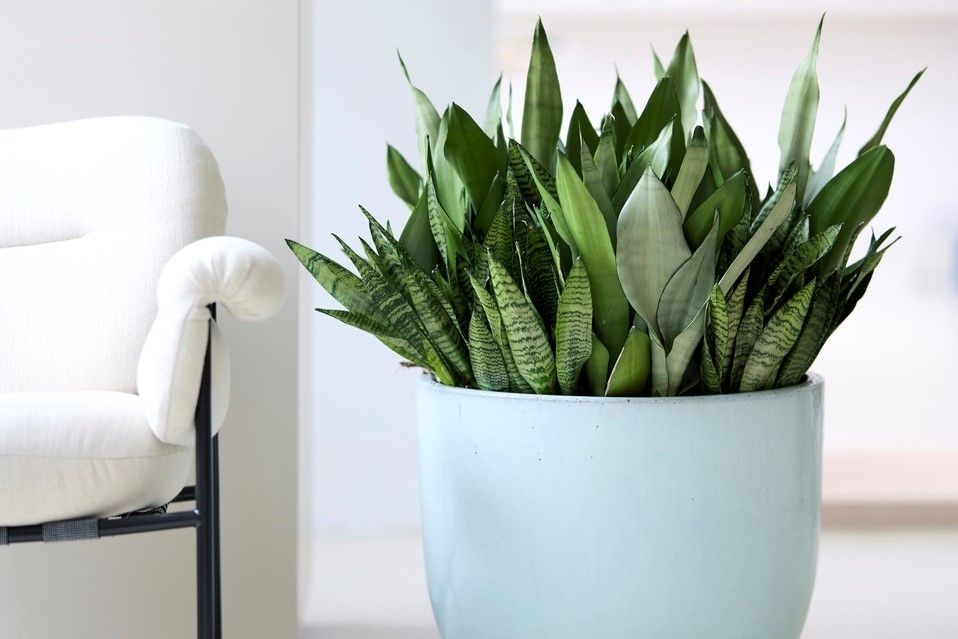Houseplant: Sansevieria

Sansevieria. It’s a fact that indoor plants can help reduce feelings of stress. So it makes sense to choose one that’s easy to grow. If you’re new to growing indoor plants and looking for a houseplant that’s hard to kill, Sansevieria is the plant for you.
About Sansevieria
This striking evergreen succulent goes by a variety of different names, including mother-in-law’s tongue, African spear plant, and snake plant, thanks to the snakeskin-like patterns on the leaves. With its dramatic upright shape, it’s ideal for small spaces and fits in well with contemporary décor. Trivia fans will be delighted to know that Sansevieria is from the same plant family as asparagus. It’s not edible, though; in fact, it’s toxic, so keep it out of reach of pets and toddlers.
In the 1980s, an often-quoted NASA study identified Sansevieria as one of the best indoor plants for removing toxins such as formaldehyde from the air. It’s since been established that you’d need an awful lot of indoor plants to replicate NASA’s results. Nevertheless, with its bold architectural shape, Sansevieria brings an atmosphere of elegance to any home, and it certainly does its bit towards keeping the air clean.
Sansevieria varieties
There are more than 70 different varieties of Sansevieria, but here are the ones you’re most likely to come across.
-
Variegated snake plant (Sansevieria trifasciata var. laurentii) has long, flat, upright leaves, attractively variegated in dark and light green and edged with creamy yellow. It can get to over 1m (3.5ft) tall, so makes a great focal point in a large pot.
-
Sansevieria zeylanica is tall and upright, with snakeskin-mottled dark and light green leaves. Like the variegated snake plant, it can reach over 1m (3.5ft) tall.
-
Sansevieria cylindrica has long, upright tubular leaves, and can grow to around 60-70cm (2-2.5ft) tall.
How to grow Sansevieria indoors
As well as coping well with a bit of neglect, Sansevierias are generally pest- and disease-free, making them the ideal plant for new indoor gardeners or those with not much time on their hands. Here are a few tips to keep your Sansevieria looking good.
-
Sansevieria plants prefer bright but indirect light, although they will cope with most conditions, including low light levels. They will grow faster in strong light, but hot afternoon sun will scorch the leaves.
-
The golden rule of growing Sansevieria is to avoid overwatering. During the plant’s growing period, between spring and autumn, allow at least two weeks between waterings, and only water once the compost has almost dried out. In the winter, the plants need even less water – once every 4-6 weeks should be fine. Water the soil only, taking care not to get any water into the centre of the leaf cluster, as this is likely to cause the plant to rot.
-
Keep the room temperature above 10ºC (50ºF) in winter.
Our great range of indoor plants looks good all year round, so visit us soon and pick out the perfect plant for your home.





